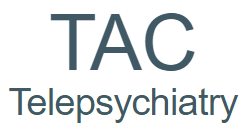Relapse does not occur as a single event; it occurs in stages and is a continuous process when withdrawing and abstaining from substance abuse. As a common aspect of addiction, it does not indicate failure. What it indicates is how the brain’s ability to process pleasure and pain is changed and altered. Brain chemistry creates a physical dependency on the substance for those in continuous relapse, and someone who struggles with substance dependency will have difficulties processing impulse control, memory, and decision-making. Relapse prevention is about teaching those who suffer from substance abuse to recognize the symptoms and change their behavior.
What is Relapse?
Relapse occurs when an individual abstaining from a substance, such as alcohol or drugs, falls back into their dependency. Relapse can occur emotionally, mentally, and physically. Both emotional and mental relapses occur succinctly over time during the initial stages of withdrawal, and physical indicates a brute-force form of abstinence that’s damaging, leading to a higher chance of relapse.
Emotional – During an emotional relapse, your emotions and behavior can set up for a possible physical relapse. Although you aren’t thinking about using, you’re experiencing emotions related to a post-acute withdrawal, including anxiety, irritability, mood swings, isolation, and defensiveness. These symptoms make a person vulnerable but are the easiest to pull back from if recognized.
Mental – In a mental relapse, you’re thinking about using it and are debating about using the substance. Signs of this include lying, fantasizing about using, glamorizing the past, and planning using others. Once you begin thinking about using, you’re more susceptible to relapsing back towards substance dependency.
Physical – A physical relapse is a final stage, where you begin using the substance through active triggers and unnoticed habits.
Common Questions About Relapse Prevention
What are triggers? – Triggers in relapse are places, people, objects, emotions, thoughts, and situations that spark the desire to use the substance. It enacts strong memories, brings about cravings, and forms the urge to use the substance as a coping mechanism.
What do I do if I relapse? – First, if you’ve only used it once, remind yourself that it is just a lapse. Relapses are continued use of the substance without intending on returning to abstinence. Lapses are normal in the recovery process, and if you’re in a treatment program, speak with your therapist about your lapse.
If I relapsed, does this mean I failed? – Failure and disappointment are common emotions after relapse, and it’s important to remember that it’s part of the long journey towards recovery.
How We Provide Aftercare with Relapse Prevention Therapy
Aftercare plans can provide aid in preventing the onset of relapse through detox and other forms of treatment. Relapse prevention therapy works through providing coping skills, cognitive therapy, and lifestyle changes to re-frame the individual’s experience and continue modifications to their habits. In our practice, we help teach people through:
- Understand relapse as a process
- Identify and cope in high-risk situations
- Implement damage control during relapse
- Stay engaged with treatment
- Learn about creating balanced lifestyles
We also can provide treatments for relapse, such as:
- Therapy/Counseling
- Family Therapy
- Outpatient Recovery
- Support Groups
Experiencing a relapse isn’t uncommon for those battling addiction, and it isn’t the end of the road. Our team is here to help you make it through and get you back on the path to recovery. It’s important to remember that relapse isn’t the end of the road; it’s just a setback to your future free from addiction. Call to schedule an appointment with one of our mental health experts today.

